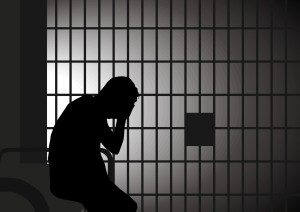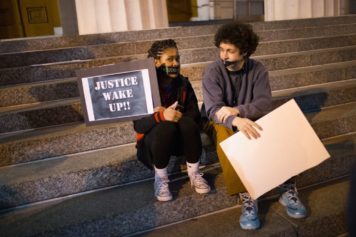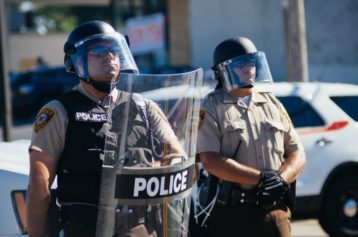
The American Civil Liberties Union (ACLU) filed a lawsuit Wednesday claiming the city’s municipal court structure was unconstitutional and “instilled fear and panic amongst the poorest residents of the city and the surrounding region.”
Joseph Anderson, one of the plaintiffs in the suit, said he was jailed for seven days because he owed the city a whopping sum of $170. Anderson is 52, has suffered three heart attacks and a stroke, and gets by on Social Security and food stamps.
Anderson’s girlfriend, Qumotra Kennedy, another plaintiff, also had similar problems when she and a friend were arrested for running a stop sign. She spent five days in a filthy jail cell before she got to see a judge. When she complained of being cold, she was offered a sheet that smelled of urine. The ACLU lawsuit stated the city was unfairly punishing poor people who didn’t have the means to pay fines.
“Indigent people who owe money to Biloxi, including people who are homeless or disabled, feel pressured to divert funds for basic necessities— food, medication, utilities, and transportation—to avoid jail and the devastating impact of incarceration on their families, loved ones, jobs, and housing,” the lawsuit states.
Being jailed can be a major setback to people who are already struggling to get by. Kennedy discovered she had been laid off after she was released from jail.
“[My boss] told me that he’s sorry, he had to let me go because I missed too many days,” Kennedy told the Huffington Post. “My work is not steady, and it’s hard to find a job right now, the way the economy is out here. I can’t pay something I ain’t got.”
Nusrat Choudhury, an attorney with the ACLU’s Racial Justice Program, said Biloxi was running a two-tier justice system. One for the rich, and another for the poor.
“It’s essentially a jailhouse shakedown. Cities across the country, like Biloxi, are scrambling to generate revenue, and they’re doing it off the backs of poor people,” said Choudhury. “Being poor is not a crime. Yet across America, people are being locked up because they can’t afford to pay traffic fines and fees. This lawsuit seeks to dismantle a two-tiered system of justice that punishes the poorest, particularly people of color, more harshly than those with means in flagrant violation of the constitution.”
According to the ACLU lawsuit, about 27 percent of Biloxi’s population lives below the federal poverty level. But the city’s budget saw a 26 percent increase from fines and forfeits between fiscal year 2008-2009 to 2015-2016.

